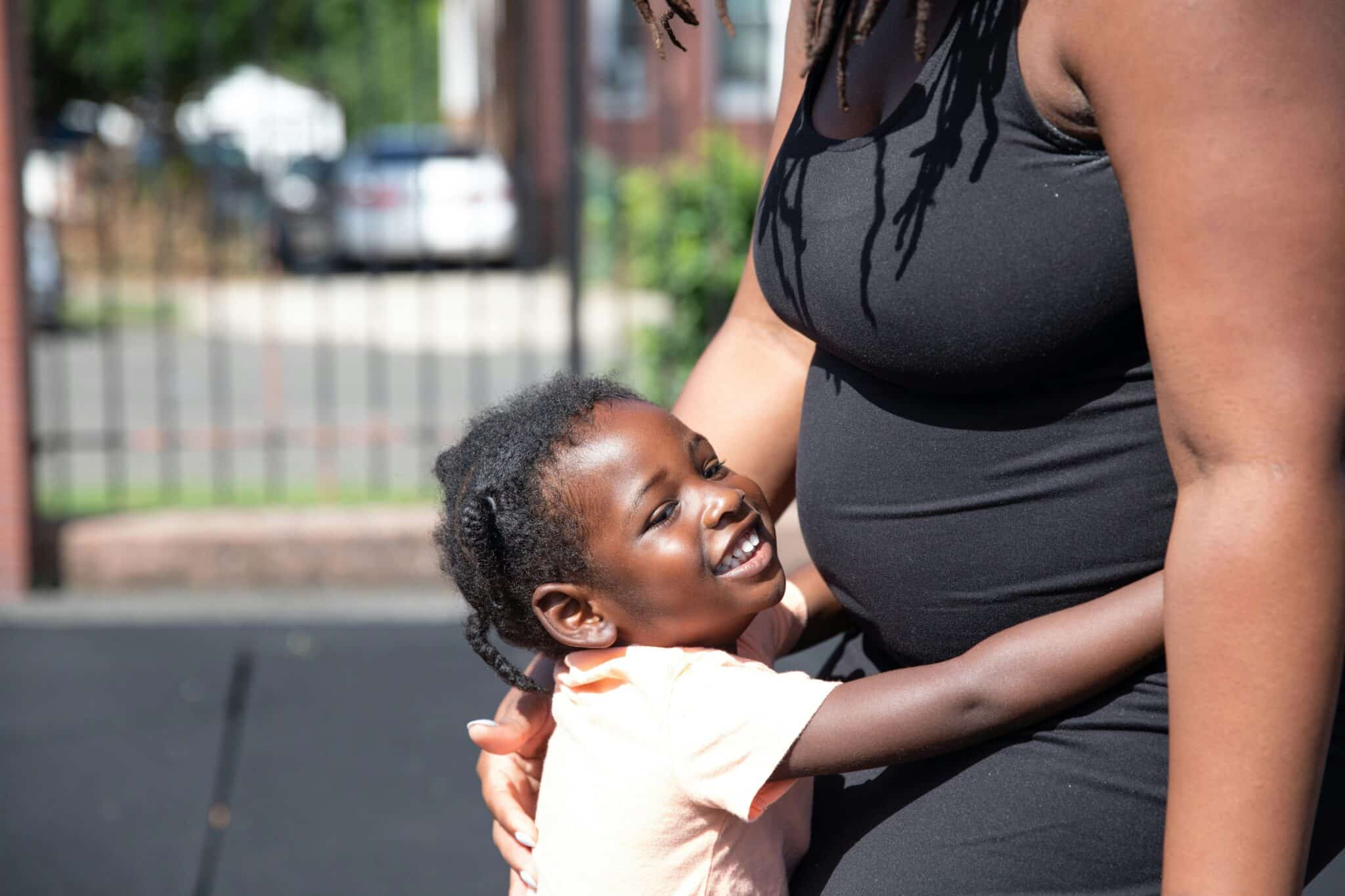New Findings from Rx Kids Shows that Unconditional Cash in Perinatal Stage Can Improve Health and Well-being for Moms and Babies
October 3, 2025
by Juliana Zhou

Two recently-published papers coming out of the Rx Kids cash program in Flint, MI reveal that universal, unconditional cash transfers can have significant positive effects on birth outcomes as well as on maternal economic stability, mental health, and well-being. These findings further support a growing body of evidence that unconditional cash for families with children can measurably improve the health and well-being of both parents and children.
The Rx Kids Program—co-led by Dr. Mona Hanna and Luke Shaefer, Ph.D.—is a first-of-its-kind, place-based cash program that provides community-wide cash “prescriptions” to pregnant women and babies. The program focuses on this period of life for two reasons. The first reason is that families tend to experience a significant decline in economic well-being in the months before and after the birth of a child. Secondly, this time of economic vulnerability during the perinatal period also coincides with a critical neurodevelopmental window for babies.
With these two problems in mind, the Rx Kids project launched in Flint, MI in January 2024 by giving $1,500 to pregnant individuals and $500 a month to families with babies for 12 months after birth. Importantly, the program was a truly universal program for all pregnant people and babies living in Flint. Additionally, receipt of these cash prescriptions is non-taxable and does not affect eligibility for public benefit programs like Medicaid and the Supplemental Nutrition Assistance Program (SNAP), which means that families with low incomes will not be penalized for participating in this program by losing other critical supports. While the findings discussed below focus on results from Flint, MI, Rx Kids is now launching in other locations throughout the state, including the City of Kalamazoo, City of Pontiac, City of Hazel Park, Royal Oak Township, Clare County, and the Eastern Upper Peninsula (i.e., Alger, Chippewa, Luce, Mackinac, and Schoolcraft Counties).
Perinatal Cash Improved Birth Outcomes
The Rx Kids research team analyzed the effect of receiving cash prescriptions on birth outcomes by comparing changes in the rates of preterm birth and low birthweight in Flint, MI to a comparison of similar cities in the state. Before Rx Kids, Flint faced considerably higher rates of preterm birth and low birthweight than comparable Michigan cities and the state overall. Exposure to Rx Kids’ cash prescription produced dramatic improvements in both measures; the rate of preterm births fell by 13-18 percent, and the rate of low birthweight fell by 22-27 percent. Relatedly, admissions to the neonatal intensive care unit also decreased.
These results translate into dozens of healthier births each year and significant cost savings in avoided medical care. Researchers also found that Flint mothers smoked less during pregnancy and received more adequate prenatal care, suggesting that the cash prescriptions reduced economic stress and allowed pregnant people to better focus on their health.
Reduced Economic Stress and Improved Maternal Mental Health
The Rx Kids team also looked at how unconditional cash affects mothers in the program. Survey data revealed reductions in eviction and food insecurity, alongside major improvements in maternal mental health. Mothers exposed to Rx Kids were 14 percent less likely to screen positive for postpartum depression and reported feeling more hopeful, respected, valued, and loved.
In short, cash improved both material well-being and emotional resilience. Perhaps most striking, Rx Kids helped restore trust in institutions like health care and government in a community that has faced years of hardship and institutional betrayal following the lead-contamination water crisis that began in 2014, which disproportionately affected children. Taken together with the state finally completing the replacement of lead pipes affected by the crisis, these positive effects of Rx Kids on family outcomes and social trust could signal the start of a new era of recommitment to help Flint families thrive.
Key Takeaways
In summary, providing unconditional cash for families during the perinatal period provides important benefits in four areas:
- Improved maternal health and well-being: Postpartum depression fell significantly, with mothers reporting better overall mental health. Pregnant mothers also smoked less during pregnancy and accessed more prenatal care.
- Greater economic stability: Families reported fewer evictions, owing less back rent, and improved food security.
- Healthier babies: Rx Kids reduced preterm births, low birthweight, and NICU admissions.
- Stronger sense of hope, dignity, and trust: Participants felt more loved, valued, and respected, and expressed greater trust in health care and government.
Together, these findings support existing evidence that unconditional cash during pregnancy and infancy can be a powerful public health and anti-poverty intervention. By reducing hardship and restoring dignity, Rx Kids is rewriting what support for families can look like and offering a model that other communities can follow.


